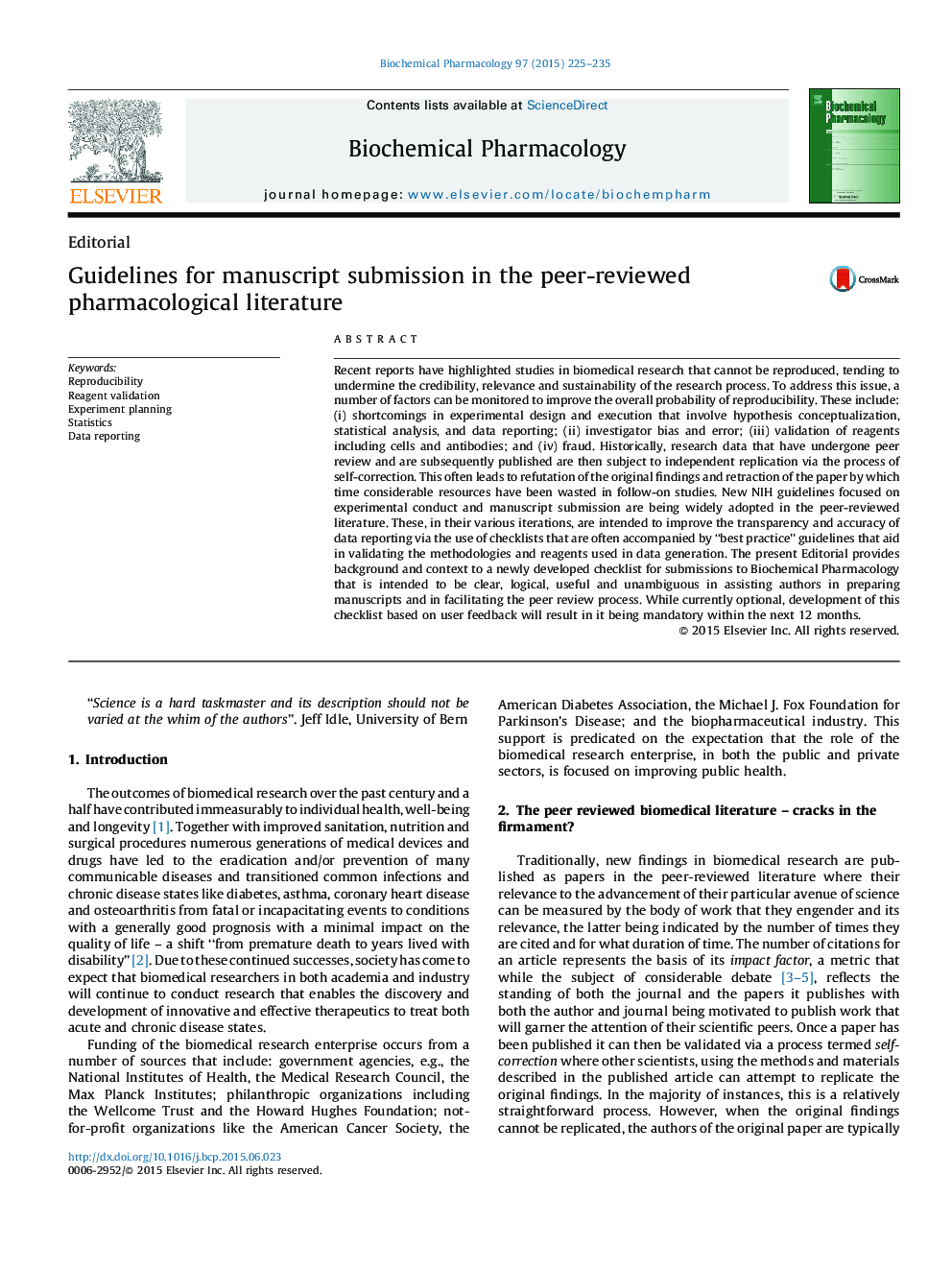| Article ID | Journal | Published Year | Pages | File Type |
|---|---|---|---|---|
| 2512090 | Biochemical Pharmacology | 2015 | 11 Pages |
Recent reports have highlighted studies in biomedical research that cannot be reproduced, tending to undermine the credibility, relevance and sustainability of the research process. To address this issue, a number of factors can be monitored to improve the overall probability of reproducibility. These include: (i) shortcomings in experimental design and execution that involve hypothesis conceptualization, statistical analysis, and data reporting; (ii) investigator bias and error; (iii) validation of reagents including cells and antibodies; and (iv) fraud. Historically, research data that have undergone peer review and are subsequently published are then subject to independent replication via the process of self-correction. This often leads to refutation of the original findings and retraction of the paper by which time considerable resources have been wasted in follow-on studies. New NIH guidelines focused on experimental conduct and manuscript submission are being widely adopted in the peer-reviewed literature. These, in their various iterations, are intended to improve the transparency and accuracy of data reporting via the use of checklists that are often accompanied by “best practice” guidelines that aid in validating the methodologies and reagents used in data generation. The present Editorial provides background and context to a newly developed checklist for submissions to Biochemical Pharmacology that is intended to be clear, logical, useful and unambiguous in assisting authors in preparing manuscripts and in facilitating the peer review process. While currently optional, development of this checklist based on user feedback will result in it being mandatory within the next 12 months.
